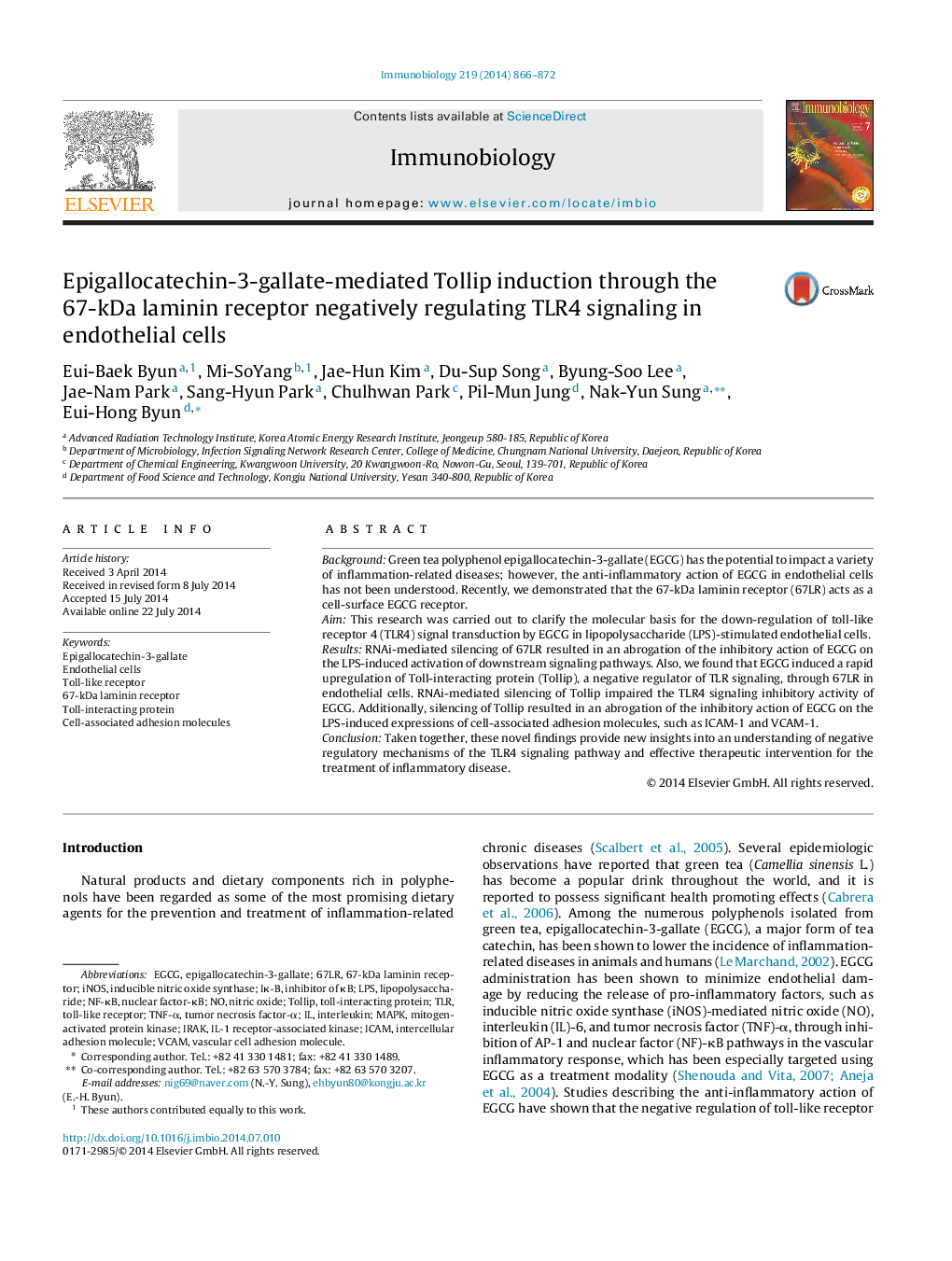| Article ID | Journal | Published Year | Pages | File Type |
|---|---|---|---|---|
| 2182958 | Immunobiology | 2014 | 7 Pages |
BackgroundGreen tea polyphenol epigallocatechin-3-gallate (EGCG) has the potential to impact a variety of inflammation-related diseases; however, the anti-inflammatory action of EGCG in endothelial cells has not been understood. Recently, we demonstrated that the 67-kDa laminin receptor (67LR) acts as a cell-surface EGCG receptor.AimThis research was carried out to clarify the molecular basis for the down-regulation of toll-like receptor 4 (TLR4) signal transduction by EGCG in lipopolysaccharide (LPS)-stimulated endothelial cells.ResultsRNAi-mediated silencing of 67LR resulted in an abrogation of the inhibitory action of EGCG on the LPS-induced activation of downstream signaling pathways. Also, we found that EGCG induced a rapid upregulation of Toll-interacting protein (Tollip), a negative regulator of TLR signaling, through 67LR in endothelial cells. RNAi-mediated silencing of Tollip impaired the TLR4 signaling inhibitory activity of EGCG. Additionally, silencing of Tollip resulted in an abrogation of the inhibitory action of EGCG on the LPS-induced expressions of cell-associated adhesion molecules, such as ICAM-1 and VCAM-1.ConclusionTaken together, these novel findings provide new insights into an understanding of negative regulatory mechanisms of the TLR4 signaling pathway and effective therapeutic intervention for the treatment of inflammatory disease.
